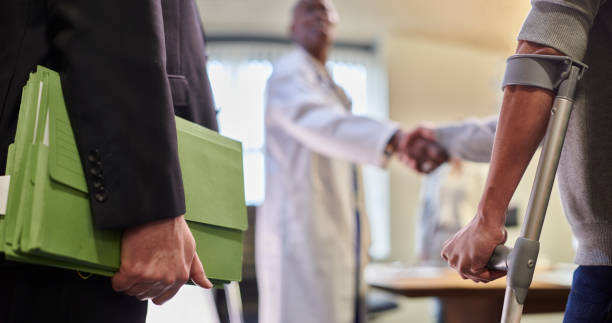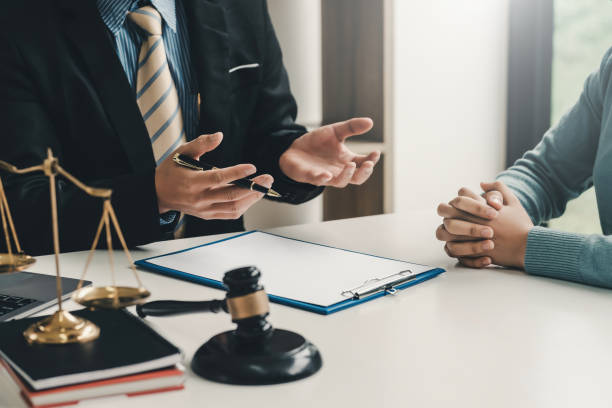Introduction
The personal injury litigation process can be overwhelming and complex. However, understanding this process is crucial for anyone seeking compensation after an accident. This article will provide a detailed guide to personal injury litigation, offering practical tips to help you maximize your settlement.

Understanding Personal Injury Litigation
Definition of Personal Injury Litigation
Personal injury litigation involves legal disputes that arise when one person suffers harm from an accident or injury, and someone else might be legally responsible for that harm. This process allows the injured party to seek compensation for their injuries and related expenses.
Importance of Personal Injury Litigation
Personal injury litigation is vital because it holds the responsible parties accountable and ensures that victims receive the compensation they need to recover from their injuries. It also promotes safety by encouraging individuals and companies to act responsibly.
Initial Steps in a Personal Injury Case
Seeking Medical Attention
The first and most crucial step after sustaining an injury is to seek medical attention. Not only is this important for your health, but it also provides documented evidence of your injuries, which is essential for your case.
Documenting the Incident
Thorough documentation of the incident is critical. This includes taking photographs, gathering witness statements, and keeping detailed notes about what happened. This evidence will be invaluable when building your case.
Contacting a Personal Injury Attorney
Consulting with a personal injury attorney early in the process can significantly affect the outcome of your case. An experienced attorney can guide you through the legal process, help gather evidence, and negotiate with insurance companies on your behalf.
Types of Personal Injury Cases
Car Accidents
Car accidents are one of the most common types of personal injury cases. These cases can range from minor fender-benders to severe collisions resulting in significant injuries or fatalities.
Slip and Fall Accidents
Slip and fall accidents occur when someone is injured on another person’s property due to hazardous conditions like wet floors, uneven surfaces, or poor lighting.
Medical Malpractice
Medical malpractice cases arise when healthcare providers fail to provide the standard of care, resulting in patient injury. These cases can be complex, often requiring expert testimony to establish negligence.
Workplace Injuries
Workplace injuries can occur in any job but are more common in physically demanding professions. Workers’ compensation often covers these injuries, but there may be additional claims against third parties.
Product Liability
Product liability cases involve injuries caused by defective or dangerous products. Manufacturers, distributors, and retailers can all be held liable if a product causes harm.
Wrongful Death
Wrongful death cases are filed by the survivors of someone who died due to another party’s negligence or intentional actions. These cases seek compensation for the survivors’ losses, such as lost income and companionship.
Common Injuries in Personal Injury Cases
Physical Injuries
Physical injuries can range from minor cuts and bruises to severe injuries like broken bones, spinal cord injuries, and traumatic brain injuries. The severity of the injury often determines the amount of compensation.
Emotional and Psychological Injuries
In addition to physical injuries, many victims suffer emotional and psychological trauma, such as anxiety, depression, and post-traumatic stress disorder (PTSD). These injuries can significantly impact a victim’s quality of life.
Long-Term and Permanent Disabilities
Some injuries result in long-term or permanent disabilities, affecting a victim’s ability to work and perform daily activities. These cases often require substantial compensation to cover ongoing medical care and loss of income.
Determining Liability
Negligence
Negligence is the most common basis for personal injury claims. To prove negligence, you must show that the defendant owed you a duty of care, breached that duty, and caused your injuries as a result.
Strict Liability
In strict liability cases, the defendant is held responsible for your injuries regardless of their intent or negligence. This is often applicable in product liability cases.
Intentional Torts
Intentional torts involve deliberate actions that cause harm, such as assault or defamation. These cases can result in both compensatory and punitive damages.
The Role of Insurance in Personal Injury Cases
Understanding Insurance Policies
Insurance policies play a crucial role in personal injury cases. Understanding the coverage limits and exclusions in your policy and the defendant’s policy is essential for determining potential compensation.
Filing an Insurance Claim
Filing an insurance claim involves notifying the insurance company of the incident and providing evidence of your injuries and damages. This process can be complicated, so it’s often beneficial to have an attorney assist you.
Dealing with Insurance Adjusters
Insurance adjusters work for the insurance company and aim to minimize payouts. It’s important to be cautious when speaking with adjusters and to consult with your attorney before accepting any settlements.
The Litigation Process
Pre-Litigation Steps
Before filing a lawsuit, your attorney will conduct a thorough investigation, gather evidence, and attempt to negotiate a settlement with the insurance company or the defendant.
Filing the Lawsuit
If a settlement cannot be reached, your attorney will file a lawsuit. This formalizes your claim and initiates the legal process.
Discovery Phase
During the discovery phase, both parties exchange evidence and information. This can include depositions, interrogatories, and requests for documents.
Pre-Trial Motions
Pre-trial motions are filed to resolve certain issues before the trial begins. These can include motions to dismiss the case or to exclude certain evidence.
Settlement Negotiations
Settlement negotiations can occur at any point during the litigation process. Many cases are settled out of court to avoid the time and expense of a trial.
Trial
If a settlement is not reached, the case will go to trial. Both sides will present their evidence and arguments, and a judge or jury will determine the outcome.
Post-Trial Motions and Appeals
After the trial, either party can file post-trial motions or appeal the decision. This can prolong the process but may be necessary to achieve a fair outcome.
Tips to Maximize Your Settlement
Proper Documentation
Proper documentation is critical in personal injury cases. Keep detailed records of all medical treatments, expenses, and communications related to your case.
Medical Records and Bills
Medical records and bills provide evidence of your injuries and the costs associated with your treatment. Ensure that all treatments are documented and that you follow your doctor’s recommendations.
Witness Statements
Witness statements can corroborate your version of events and strengthen your case. Obtain contact information for any witnesses and ask them to provide written statements.
Expert Testimonies
Expert testimonies from medical professionals, accident reconstruction specialists, and other experts can provide critical support for your claims.
Negotiation Tactics
Effective negotiation tactics can significantly impact the outcome of your case. Your attorney will use their experience to negotiate the best possible settlement personal injury.
Hiring the Right Attorney
Hiring an experienced personal injury attorney is crucial. Look for an attorney with a successful track record in personal injury cases and who makes you feel comfortable and confident.
Common Challenges in Personal Injury Litigation
Proving Liability
Proving liability can be challenging, especially in complex cases. Strong evidence and expert testimonies are often necessary to establish fault.
Dealing with Insurance Companies
Insurance companies often use tactics to minimize payouts. Being prepared and having an experienced attorney on your side can help you navigate these challenges.
Overcoming Pre-Existing Conditions
Insurance companies may argue that your injuries were pre-existing or not as severe as claimed. Thorough medical documentation and expert testimony can help counter these arguments.
Managing Legal Costs
Legal costs can be significant, but many personal injury attorneys work on a contingency fee basis, meaning they only get paid if you win your case. Discuss fee arrangements with your attorney upfront.
Preventive Measures
Safety Tips
Taking preventive measures can help reduce the risk of accidents and injuries. Follow safety guidelines at work, drive carefully, and maintain your property to prevent slip and fall accidents.
Legal Precautions
Legal precautions, such as having appropriate insurance coverage and understanding your legal rights, can help protect you in the event of an accident.
Personal Stories and Case Studies
Real-Life Case Studies
Real-life case studies can provide valuable insights into the personal injury litigation process. These stories illustrate the challenges and successes of other individuals who have gone through similar experiences.
Lessons Learned
Lessons learned from real-life cases can help you understand what to expect and how to navigate your own case more effectively.
Expert Insights
Advice from Personal Injury Lawyers
Personal injury lawyers can provide valuable advice on how to handle your case. They can offer insights into common pitfalls and strategies for maximizing your settlement.
Medical Experts’ Opinions
Medical experts can explain the long-term impacts of your injuries and the importance of following medical advice. Their opinions can be crucial in proving the extent of your injuries.
Summary of Key Points
Understanding the personal injury litigation process is essential for maximizing your settlement. Key steps include seeking medical attention, documenting the incident, and working with an experienced attorney.
